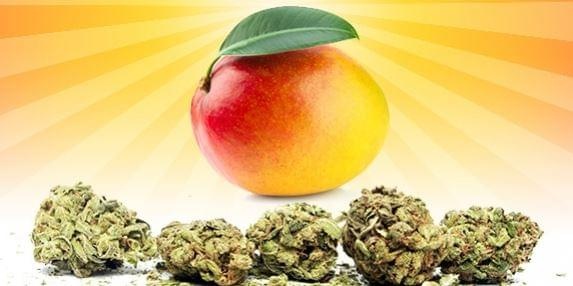Possible synergy of this cannabinoid/terpene blend
If you’re a regular cannabidiol (CBD) user, you may have noticed a rather new trend popping up among retail products. Other than the usual information on products like “THC-free,” you might have spotted another descriptor–something along the lines of “now with terpenes!”
So what are terpenes, and why are they in your CBD?
Terpenes are phytochemicals that give the hemp or cannabis plant its distinctive aroma. But they can do more than just fill a room with an earthy fragrance. Terpenes have medicinal properties of their own, just like the cannabinoids also found within the plant that houses them.
And just like cannabinoids, these terpenes can be included in cannabis products (as in “full-spectrum”) or extracted out (as in “isolates”). But as consumers have begun to learn more about terpenes, CBD companies have been experimenting with products that contain terpenes to enhance the effects of CBD and create something of a modified “entourage effect.”
Myrcene is one such terpene that occurs at high levels in the cannabis plant and is also found in mangoes. Myrcene is a monoterpene with a simple chemical structure, acting as a precursor for other, more complex terpenes, and has therefore been called the “mother” of all terpenes.[1,2]
Pre-clinical studies have indicated that myrcene can produce analgesic, sedative, and anti-inflammatory effects.[1,3] As CBD holds many of the same properties, combining these could produce a boost in these effects.
But is there any evidence supporting a benefit of this duo in action?
CBD is unique in that it affects multiple receptors in the body and brain, and its effects are not limited to action on the endocannabinoid system. For example, CBD works as an analgesic by acting on the TRPV1 receptor that regulates the pain response.[4]
A physiological experiment evaluating both CBD and myrcene demonstrated that myrcene was the most significant contributor to TRPV1 function, with myrcene regulating CBD’s effects on this receptor.[5] An additional pre-clinical study showed that administering a drug that blocks opioid function reversed myrcene’s analgesic effects, indicating that part of myrcene’s pain-killing properties are mediated by opioid receptors.[6] Therefore, CBD and myrcene may affect pain through different but complementary pathways.
While additional research is required to better understand the medicinal properties of terpenes as well as the effects of combining cannabinoids with terpenes, it is likely that companies will continue bringing to market an array of unique formulations of CBD and cannabis products.
Currently, individual terpenes are not often listed on product labels. Therefore, if you are interested in trying a particular blend, it may not be possible to know the exact terpene you are ingesting, which is unfortunate due to the wide array of these phytochemicals, each with their own effects. As the industry moves toward greater transparency in labeling, hopefully one day soon we can truly test out these different combinations and see if their synergy can provide an extra boost to an already beneficial product.
Image Source: https://infocus247.com/2017/06/24/cannabis-and-mangoes/
References
- Russo EB. Taming THC: Potential cannabis synergy and phytocannabinoid-terpenoid entourage effects. Br J Pharmacol. 2011;163(7):1344-1364.
- Novak J, et al. Essential oils of different cultivars of Cannabis sativa L. and their antimicrobial activity. Flavour Fragr J. 2001;16:259-262.
- Guimarães AG, et al. Monoterpenes with analgesic activity–a systematic review. Phytother Res. 2013;27(1):1-15.
- Starkus J, et al. Diverse TRPV1 responses to cannabinoids. Channels (Austin). 2019;13(1):172-191.
- Jansen C, et al. Myrcene and terpene regulation of TRPV1. Channels (Austin). 2019; 13(1):344-366.
- Russo EB. Cannabinoids in the management of difficult to treat pain. Ther Clin Risk Manag. 2008;4(1):245-259.










